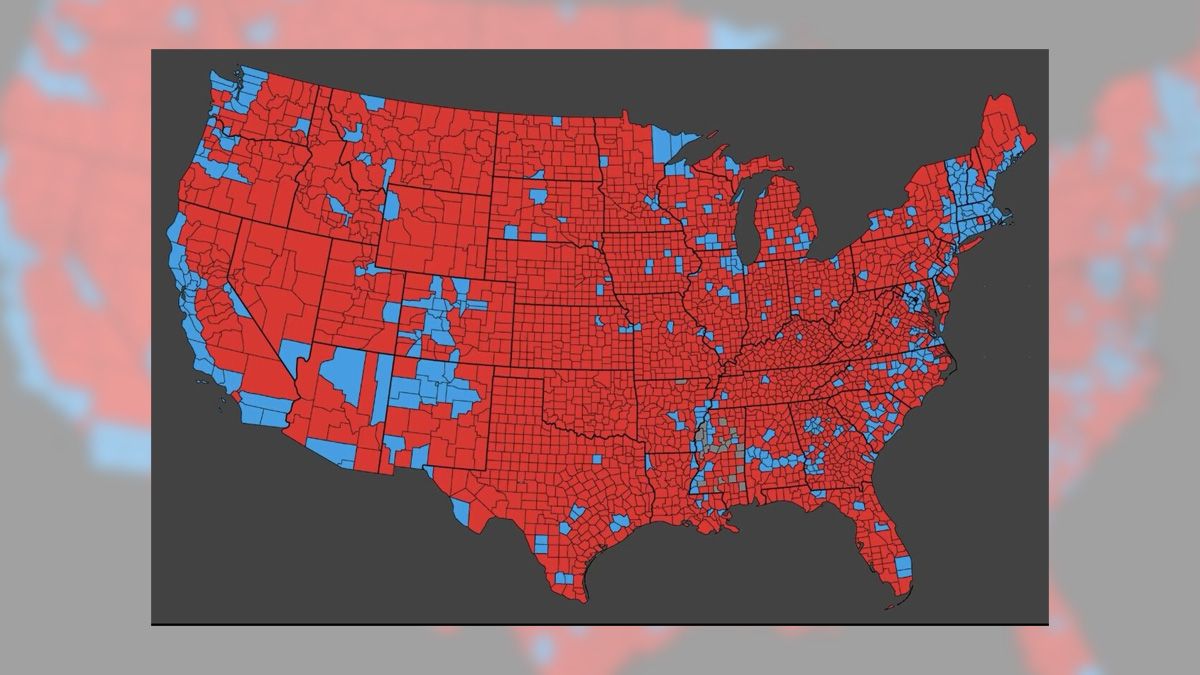

User Controls
Thinking of going to America
-
2025-02-23 at 6:12 AM UTC
-
2025-02-23 at 6:12 AM UTC
-
2025-02-23 at 6:13 AM UTCThe difference is MAGA don't want democracy. People who want democracy deserve it and shouldn't be forced to live in an authoritarian regime.
-
2025-02-23 at 6:14 AM UTC
Originally posted by Dirtbag A coup is technically democratic.
No, it isn't. A coup is when a minority uses manipulation or force to topple the current government.
Webster:
coup
1 of 2
noun
ˈkü
plural coups ˈküz
Synonyms of coup
1
: a sudden decisive exercise of force in politics and especially the violent overthrow or alteration of an existing government by a small group : coup d'état -
2025-02-23 at 6:21 AM UTC
Originally posted by Speedy Parker No, it isn't. A coup is when a minority uses manipulation or force to topple the current government.
Webster:
coup
1 of 2
noun
ˈkü
plural coups ˈküz
Synonyms of coup
1
: a sudden decisive exercise of force in politics and especially the violent overthrow or alteration of an existing government by a small group : coup d'état
It's up for debate.
"Technically, a political coup is generally seen as undemocratic because it involves the sudden and often forceful overthrow of an existing government, bypassing established legal and electoral processes. However, there are scenarios where a coup is argued to have democratic intentions or outcomes. For example:
1. **Restoring Democracy:** In cases where an authoritarian regime refuses to hold fair elections or undermines democratic institutions, a coup might be justified by its leaders as a way to restore democratic governance. This is highly controversial and depends on the legitimacy and actions of the new leadership.
2. **Popular Support:** If a coup has widespread popular support and leads to fair elections or more democratic governance, some might argue that it reflects the will of the people, albeit through extralegal means.
3. **Interim Governments:** Sometimes, coups establish interim governments that promise to oversee a transition to democracy. Whether this transition actually occurs influences whether the coup is retrospectively viewed as democratic.
However, most political scientists maintain that since coups bypass legal and electoral procedures, they are fundamentally at odds with democratic principles, even if they lead to democratic outcomes." -
2025-02-23 at 6:22 AM UTC
Originally posted by Dirtbag It's up for debate.
"Technically, a political coup is generally seen as undemocratic because it involves the sudden and often forceful overthrow of an existing government, bypassing established legal and electoral processes. However, there are scenarios where a coup is argued to have democratic intentions or outcomes. For example:
1. **Restoring Democracy:** In cases where an authoritarian regime refuses to hold fair elections or undermines democratic institutions, a coup might be justified by its leaders as a way to restore democratic governance. This is highly controversial and depends on the legitimacy and actions of the new leadership.
2. **Popular Support:** If a coup has widespread popular support and leads to fair elections or more democratic governance, some might argue that it reflects the will of the people, albeit through extralegal means.
3. **Interim Governments:** Sometimes, coups establish interim governments that promise to oversee a transition to democracy. Whether this transition actually occurs influences whether the coup is retrospectively viewed as democratic.
However, most political scientists maintain that since coups bypass legal and electoral procedures, they are fundamentally at odds with democratic principles, even if they lead to democratic outcomes."
The meaning of the word coup is not up for debate unless you can find a dictionary that defines it as a democratic action you dumb cunt. -
2025-02-23 at 6:29 AM UTCI'm fine with you wanting an authoritarian regime but you can do that in you contained zoos red states will become. You're not going to oppress anyone who doesn't want to he oppressed.
-
2025-02-23 at 6:30 AM UTC
Originally posted by Dirtbag I'm fine with you wanting an authoritarian regime but you can do that in you contained zoos red states will become. You're not going to oppress anyone who doesn't want to he oppressed.
how do you think that would work out considering red states produce the majority of food and raw materials? -
2025-02-23 at 6:35 AM UTC
-
2025-02-23 at 6:36 AM UTC"In 2022, wealthier, Democratic-leaning blue states paid more into the federal government than they received, in contrast to the less wealthy, Republican-leaning red states, which received more in federal funds than they contributed. By 2024, this dynamic shifted, with both red and blue states receiving more from the federal government than they paid in taxes. However, red states still outpaced blue states in federal funds received per dollar paid in taxes, securing $1.24 compared to the $1.14 blue states received. In the MoneyGeek rankings, seven of the 10 most dependent states are considered red states."
-
2025-02-23 at 6:36 AM UTC
-
2025-02-23 at 6:38 AM UTC
Originally posted by Dirtbag "In 2022, wealthier, Democratic-leaning blue states paid more into the federal government than they received, in contrast to the less wealthy, Republican-leaning red states, which received more in federal funds than they contributed. By 2024, this dynamic shifted, with both red and blue states receiving more from the federal government than they paid in taxes. However, red states still outpaced blue states in federal funds received per dollar paid in taxes, securing $1.24 compared to the $1.14 blue states received. In the MoneyGeek rankings, seven of the 10 most dependent states are considered red states."
Wow ten whole pennies more, you guys are grabbing at burning straws. LOL -
2025-02-23 at 6:44 AM UTC"If the U.S. split into two countries along red and blue state lines, the blue states would face some challenges related to agriculture but would likely be able to adapt for several reasons:
### **Agricultural Dependency and Adaptation**
1. **Current Dependency**: Blue states are generally less dependent on agriculture as a primary economic driver compared to red states. Their economies are more diversified, with strengths in technology, finance, manufacturing, and education.
2. **Food Supply and Trade**:
- Blue states could import agricultural products from the red states or other countries. Given their strong economies, they could afford to pay for food imports.
- They could also expand local agricultural production. For example, California is a major agricultural producer, particularly of fruits, vegetables, and nuts.
3. **Technological Advantage**: Blue states have leading research institutions and tech companies that could innovate in agricultural technology, vertical farming, and sustainable food production.
### **Economic and Political Considerations**
- **Trade Dependencies**: Red states would be heavily dependent on blue states for markets, technology, and financial services. This interdependence would likely encourage continued trade agreements.
- **Economic Resilience**: Blue states have more robust economies overall, which could cushion the impact of any agricultural disruptions.
### **Conclusion**
While blue states would face initial challenges in losing access to some agricultural products from red states, their economic strength, technological capability, and potential for local production would help them adapt. The impact would be more about adjusting trade patterns and investing in alternative agricultural methods rather than facing severe shortages or economic hardship." -
2025-02-23 at 6:49 AM UTC
Originally posted by Dirtbag I see friendship as a covenant and couldn't live with myself if I just let monsters take my only friend away.
YOU CALLING ME A MONSTER?
All this play I'm doing because I mirror the rest of your fucking sick perverted fucks. Not just Sexual Perversion but mocking life in general and perverting ALL OF YOUR WORDS
Who's the real Monster now? YOU ARE. ALL OF YOU ARE. DONT FUCK WITH ME, You HEATHEN -
2025-02-23 at 7:09 AM UTC
Originally posted by Dirtbag "If the U.S. split into two countries along red and blue state lines, the blue states would face some challenges related to agriculture but would likely be able to adapt for several reasons:
### **Agricultural Dependency and Adaptation**
1. **Current Dependency**: Blue states are generally less dependent on agriculture as a primary economic driver compared to red states. Their economies are more diversified, with strengths in technology, finance, manufacturing, and education.
2. **Food Supply and Trade**:
- Blue states could import agricultural products from the red states or other countries. Given their strong economies, they could afford to pay for food imports.
- They could also expand local agricultural production. For example, California is a major agricultural producer, particularly of fruits, vegetables, and nuts.
3. **Technological Advantage**: Blue states have leading research institutions and tech companies that could innovate in agricultural technology, vertical farming, and sustainable food production.
### **Economic and Political Considerations**
- **Trade Dependencies**: Red states would be heavily dependent on blue states for markets, technology, and financial services. This interdependence would likely encourage continued trade agreements.
- **Economic Resilience**: Blue states have more robust economies overall, which could cushion the impact of any agricultural disruptions.
### **Conclusion**
While blue states would face initial challenges in losing access to some agricultural products from red states, their economic strength, technological capability, and potential for local production would help them adapt. The impact would be more about adjusting trade patterns and investing in alternative agricultural methods rather than facing severe shortages or economic hardship."
1. food prices are artificially depressed by the federal government and in most of the first world, largely due to agricultural subsidies which would evaporate if the federal government were to dissolve.
2. the FAGMANs, and by extension most of the tech industry, are incredibly overvalued. Finance produces nothing. Education adds value in other areas but isn't profitable or productive in and of itself. -
2025-02-23 at 7:21 AM UTCI wouldnt wanna go there again. like ever again guys.
-
2025-02-23 at 7:22 AM UTC
-
2025-02-23 at 7:23 AM UTC
-
2025-02-23 at 8:05 AM UTC
Originally posted by Dirtbag "If the U.S. split into two countries along red and blue state lines, the blue states would face some challenges related to agriculture but would likely be able to adapt for several reasons:
### **Agricultural Dependency and Adaptation**
1. **Current Dependency**: Blue states are generally less dependent on agriculture as a primary economic driver compared to red states. Their economies are more diversified, with strengths in technology, finance, manufacturing, and education.
2. **Food Supply and Trade**:
- Blue states could import agricultural products from the red states or other countries. Given their strong economies, they could afford to pay for food imports.
- They could also expand local agricultural production. For example, California is a major agricultural producer, particularly of fruits, vegetables, and nuts.
3. **Technological Advantage**: Blue states have leading research institutions and tech companies that could innovate in agricultural technology, vertical farming, and sustainable food production.
### **Economic and Political Considerations**
- **Trade Dependencies**: Red states would be heavily dependent on blue states for markets, technology, and financial services. This interdependence would likely encourage continued trade agreements.
- **Economic Resilience**: Blue states have more robust economies overall, which could cushion the impact of any agricultural disruptions.
### **Conclusion**
While blue states would face initial challenges in losing access to some agricultural products from red states, their economic strength, technological capability, and potential for local production would help them adapt. The impact would be more about adjusting trade patterns and investing in alternative agricultural methods rather than facing severe shortages or economic hardship."
You really don't know dick all about America or it's politics you dirty slut.
